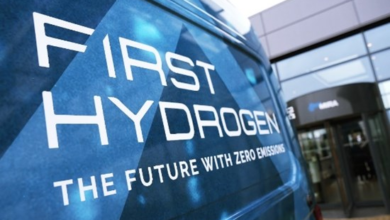SwRI expands hydrogen energy research capabilities with new liquid hydrogen storage tank

Southwest Research Institute (SwRI) has installed a large-capacity liquid hydrogen tank to expand its advanced hydrogen energy research initiatives.
Leveraging the tank’s capabilities alongside a multidisciplinary research approach, SwRI endeavors to explore technology opportunities and address obstacles related to hydrogen energy research and development.
The SwRI liquid hydrogen storage tank has a capacity of 17,000 gallons and will provide the Institute with a cost-effective, reliable supply of hydrogen for its multifaceted research initiatives. Previously, the Institute fueled its hydrogen research using commercial compressed hydrogen trailers.
“Ultimately, we believe that the installation of this liquid storage tank solves a lot of logistical challenges for SwRI’s hydrogen-related research efforts,” said Ryan D. Johnson. “Instead of bringing in multiple compressed hydrogen trailers each week to fuel our hydrogen research, we now have large amounts of hydrogen readily on hand.”
SwRI has multidisciplinary teams dedicated to hydrogen energy research initiatives across a broad spectrum of industries, including hydrogen combustion, hydrogen fuel cell research and testing, safety and hydrogen gas compressor research, among others. SwRI engineers and scientists are currently investigating opportunities for hydrogen generation, safety and distribution, while also exploring the challenges presented by hydrogen/natural gas blends. Other programs are looking at hydrogen fuel in power generation and transportation applications.
The SwRI tank leverages cutting-edge cryogenic technology to enable its high-capacity liquid hydrogen storage. This super-cooled, high-density fuel allows the Institute to supply large, high-power engines for long periods of time. The tank includes cryogenic pumps and ambient air vaporizers that can continuously supply up to 150 kilograms per hour of gaseous hydrogen to research facilities. A separate port on the tank enables the direct withdrawal of liquid hydrogen to support future specialized research needs.
According to Johnson, SwRI’s liquid hydrogen storage tank has the added benefit of reducing overall hydrogen costs significantly, savings which can be passed along to Institute clientele.
“Numerous projects benefit from the installation of this tank on our campus,” said Johnson. “We will now be able to run 100 percent hydrogen in large stationary engines, turbines, or fuel cells capable of generating up to 2 megawatts of power. That, on its own, is exciting to me. It certainly hasn’t been done in the U.S. previously, and it serves as an example of how Southwest Research Institute is committed to serving as a pioneer in hydrogen energy research.”
The Institute’s deep expertise in hydrogen energy has so far led to the development of R&D solutions with hydrogen technology used in rockets, alternative combustion, fuel cells, energy storage and industrial processing plants.
